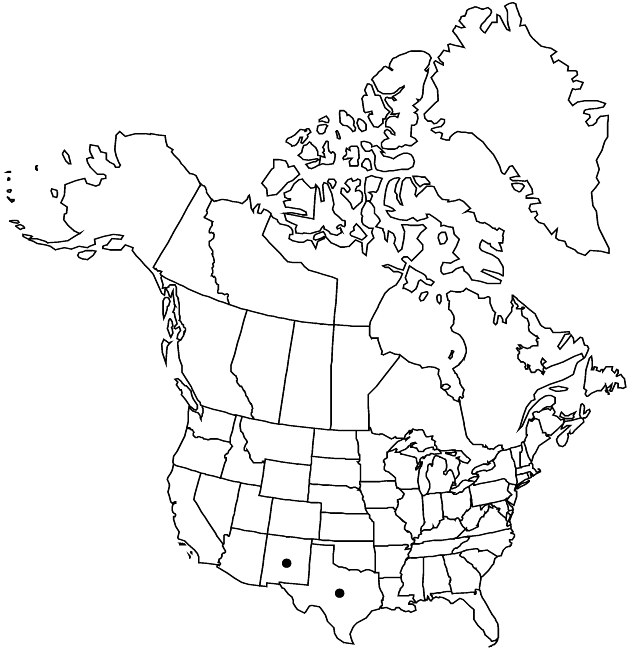Perityle quinqueflora
SouthW. Naturalist 4: 205. 1959.
Plants 7–30 cm (often densely leafy); usually glabrate or puberulent, sometimes hirtellous. Leaves: petioles 5–8 (–12) mm; blades reniform to cordate, 8–20 (–33) × 8–20 (–33) mm, margins subentire, dentate-toothed, or shallow-lobed. Heads in corymbiform arrays, 7–8 (–9) × 2–3 mm. Peduncles 2–10 (–15) mm. Involucres cylindric to narrowly campanulate. Phyllaries 5–6, linear-lanceolate, 5–6 (–9) × (1–) 1.3–1.7 mm. Disc-florets 5–6 (–8); corollas yellow, tubes 1–1.3 mm, throats tubular, 2–2.3 (–2.8) mm, lobes 0.5–1 mm. Cypselae 1.9–2 (–2.9) mm; pappi of 25–30 bristles 0.6–2.5 (–3.5) mm. 2n = 34.
Phenology: Flowering spring–fall.
Habitat: Crevices of limestone (rarely igneous) rock in high canyons, bluffs, and caprock
Elevation: 1200–2500 m
Discussion
Perityle quinqueflora grows in mountains of west-central trans-Pecos Texas and adjacent New Mexico. Possibly P. quinqueflora and the similar P. rupestris var. rupestris have both evolved from a widespread common ancestor resembling P. cernua.
Selected References
None.
